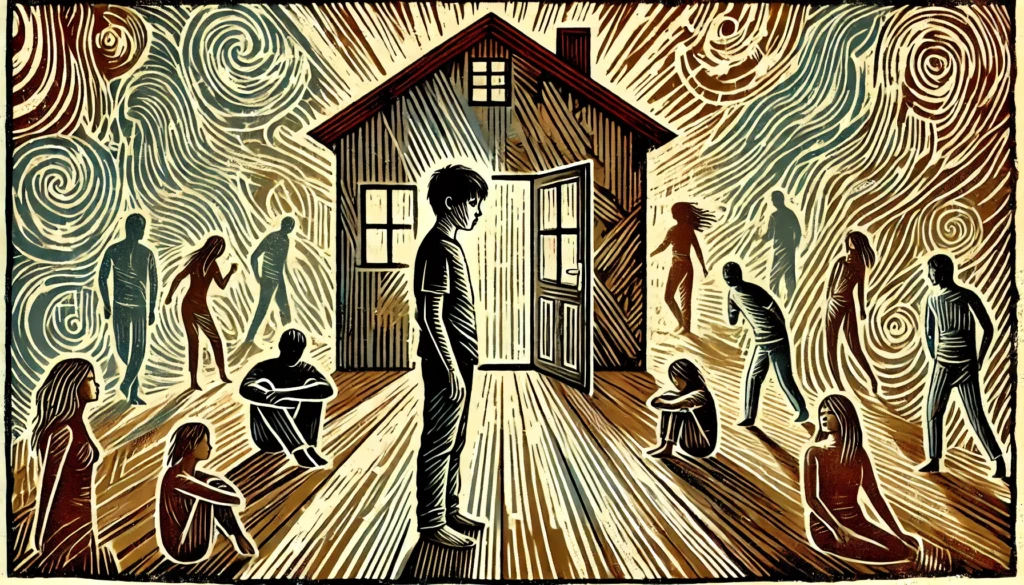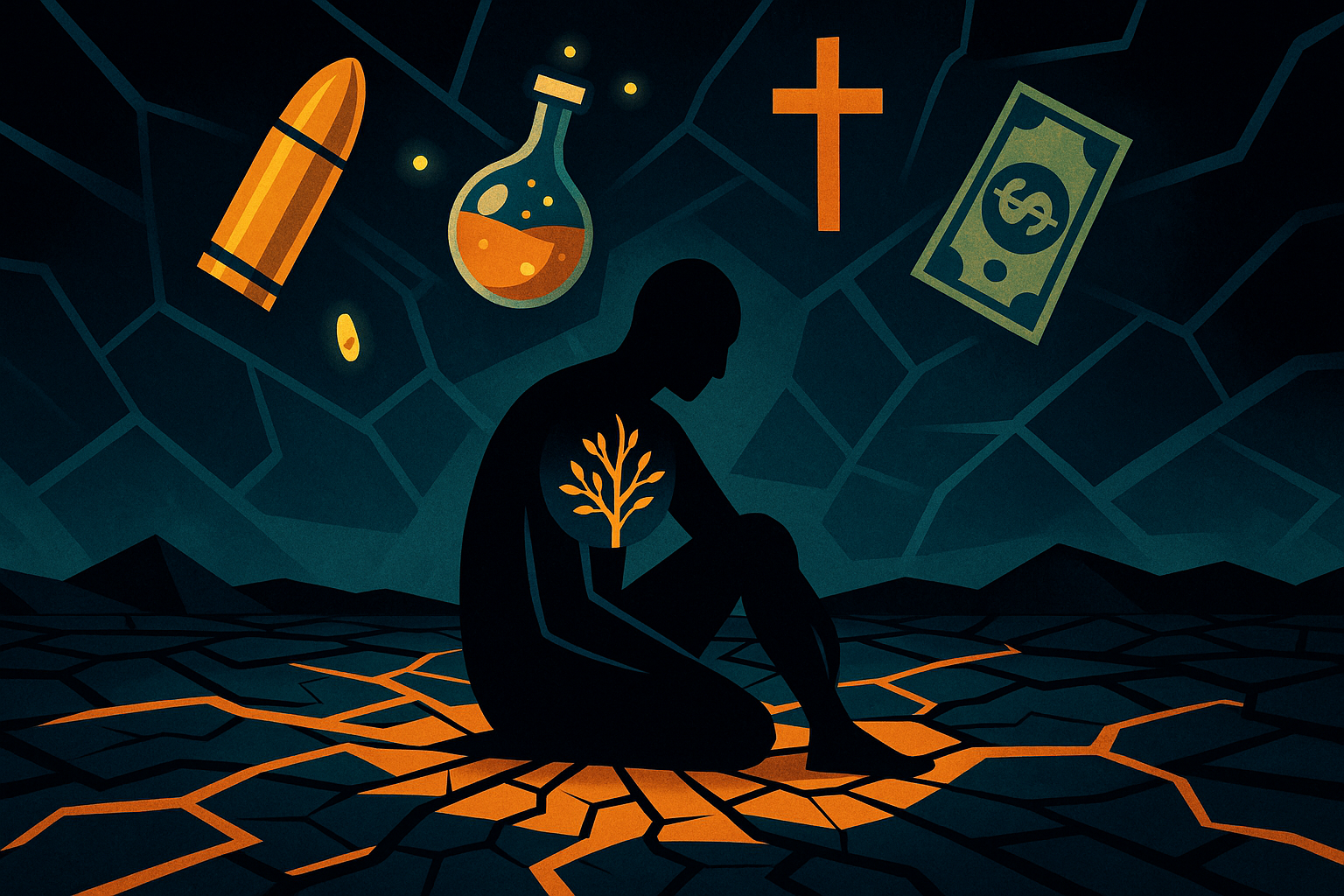READ IT TO ME: Click play to listen to this post.
“We come from fallible parents who were kids once, who decided to have kids and who had to learn how to be parents. Faults are made and damage is done, whether it’s conscious or not. Everyone’s got their own ‘stuff,’ their own issues, and their own anger at Mom and Dad. That is what family is. Family is almost naturally dysfunctional.” – Chris Pine
Everyone needs to feel safe, to have a sense of belonging and to experience dignity in their life. Safety is created when your agency, your interdependence, and your autonomy are affirmed.
That said, many of us sacrificed one of these needs to get one of the other needs met. For example, I grew up in a family of 9 children. My parents raised my oldest sister’s children for much of their childhood. So, for much of my childhood, I had 9-12 kids coming and going in the household. It was chaotic. There seemed to be one crisis after another. In the midst of crisis, I never felt safe. I learned to sacrifice safety for a sense of belonging. I desperately wanted to fit in with my 4 older brothers. I learned to let my older brothers win in sports. I once played tackle football without a helmet to prove to my older brother that I was tough. In boxing, I practiced getting hit in the face using my anger to numb the pain without flinching. I wanted to prove to my older brother that I was tough and could handle it. None of those experiences felt safe. I sacrificed safety in pursuit of a chance to fit in with my older brothers.
Many of us were assigned to play particular roles in our family of origin. You may have been the hero while I was the scapegoat. Some of you were wallflowers, focusing on staying out of trouble hoping that would get the attention you needed. Still others were the clowns, giving to the family a sense of comic relief. God knows your family needed it. There are a host of roles that we might play and some of us played more than one. Roles are OK but only if you get to choose them. Many times that is not the case.
Most of us are dysfunctional in some way. In a dysfunctional family, chaos was normal. Many learned to live with hyperactive alert waiting for the next shoe to drop. In my family, it was eerie when there was no chaos. Usually, there was always something coming down, ie a knock-down drag-out fight between brothers, financial crisis, a cancer diagnosis, abuse of every kind and on an on it went. You may know what I am talking about. As a result, like me, you learned to be uncomfortable with a season of calm. You learned to crave drama and excitement on such a subconscious level that you were drawn to it without realizing the reason why. Likely, you were blind that this dynamic was even happening! It just seemed like a stroke of bad luck. Or, if you are a fundamental Christian you would just chalk it up as the trials and tribulations of being a believer. Even though this chaos felt familiar, recovery teaches us that our vulnerable and wounded childhood needs were not met.
As an adult, there were times that pieces of my past came calling without being invited. New circumstances and experiences triggered very old core wounds. One of my old core wounds is abandonment. It’s amazing how often it would show up in different ways as an adult. In recovery I learned to recognize it immediately, acknowledge it, feel it, and then remind myself that it was an old hurt. I learned how not to get lost in the old experience of abandonment and practiced letting go of it. It is a practice I work with to this day.
It’s easy to be drawn back into the blackhole of family dysfunction. All that is necessary is to travel back to your family of origin and immediately you will feel a palpable tug to the old role you played. Some have carried the role with them throughout their lives and it has been welded to their life experience. They would not know who they are outside of this early assigned role from their family of origin.
Many addicts crave intensity. They find a form of comfort through the continual creation of the intensity of their childhood atmosphere. Mostly, this dynamic goes unnoticed. Recovery helps you take the blinders off and see what it is that fuels dysfunction in your life.
Here are some steps to consider to break your family dysfunctional role that visits you without being invited.
1. Safety, Belonging, Dignity, and the Role of Family of Origin Take time to reflect on the familiar patterns of pain that exist in your life. You may find that the chaos that was true in your childhood is essentially present in your life now. The circumstances might be different but virtually your adult emotional life is like your childhood, just old furniture rearranged with a different look. Nothing ever changes until it becomes real. You must recognize the patterns of dysfunction before you can address the pain that comes with it.
2. Embrace intimacy to remove intensity. When you find yourself intensely reacting to others, take a deep breath. Lean into the intensity and ask yourself “when have I felt this intense feeling before?” Emotional intimacy is recognizing where the feeling came from and scrubbing the wound by validating the unrecognized painful pattern that occurred when you were younger. This requires courage to process this feeling and create emotional intimacy. It will be painful but when you create the emotional intimacy the emotional intensity recedes because you shift out of the trance of being a small child into living as an empowered adult.
3. As an empowered adult trust your “wise mind” self to choose the roles that make sense to you to create a healthy connection to yourself and others. You don’t have to be dominated by unhealthy patterns learned in a dysfunctional family. You can separate yourself and choose a different destiny. In radical language Jesus once said “If anyone comes to me and does not hate his own father and mother…he cannot be my disciple.” the implication is on the separation from unhealthy dysfunctional patterns that blocked healthy intimacy with self and others.
Be the leader you are looking for. You can provide the safety, sense of belonging and experience of dignity that every person needs. As a powerful adult play the role that will manifest self-care and fulfilling your own brilliant destiny.





